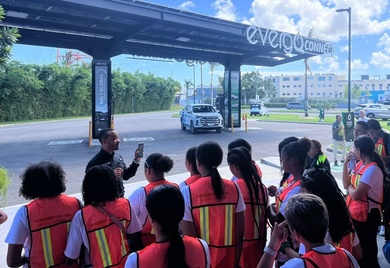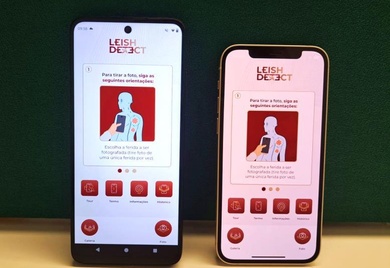Respect the Environment, Protect People, and Improve Quality of Life: How To Build Green Houses

Few things improve quality of life as much as adequate housing. And if it is affordable, green, and resilient, so much the better! But for this to become a reality in Latin America and the Caribbean, it is imperative to address the housing deficit.
So, what is the housing deficit? It is the difference between the amount of housing needed by a given population and the amount of housing available at any given time.
Addressing this gap requires public policy, urban zoning and planning, financial solutions, and technical capacity building for the private sector to incorporate the “green housing” approach as a baseline in its new projects, whether or not they are social housing.
IDB Invest Sustainability Week 2024. Register NOW!
Affordable social housing is critical to closing the poverty gap and promoting development in Latin America and the Caribbean. According to ECLAC, the region faces a housing deficit of nearly 58 million units, with an estimated 89% of the population expected to live in urban areas by 2050.
Globally, the building sector accounts for 35% of final energy consumption, with the 21% associated with the residential sector alone generating 17% of global CO2 emissions.
Moreover, our region is the second most susceptible to natural disasters. Addressing the housing deficit with green and resilient housing meets the population's basic needs while contributing to environmental protection, personal safety, and better quality of life.

Certification schemes, such as CASA in Colombia, Brazil, and Guatemala, and financial instruments, such as Mi Vivienda Verde in Peru and Ecocasa in Mexico, combine technical and financial tools to enable developers and builders to apply prescriptive and performance-based mitigation and adaptation measures.
To strengthen the technical capacity of the private construction sector to plan and implement green and resilient social housing projects, the IDB Group has developed the online course “¿Cómo planificar viviendas verdes y resilientes?” (Planning Green and Resilient Housing).
Available from May 2024, the course aims to:
Define what constitutes green and resilient housing and its benefits.
Recognize the progress made in Latin America and the Caribbean in implementing green housing as a climate change mitigation and adaptation strategy.
Recognize best practices in the planning, designing, and constructing housing that meets the criteria to be classified as green or resilient.
Recognize financial and non-financial incentives for developing green and resilient housing to promote climate change action.
Related content
IDB Invest and Vinte Support Mexico's Housing Sector with Sustainable Bond
IDB World: Financial Innovation; Private Funding for the Power Sector; Green Housing
As the private sector investment arm of the IDB Group, IDB Invest acknowledges its important role in simultaneously closing the housing gap and promoting the development of green and resilient infrastructure in Latin America and the Caribbean.
As such, we provide financial and non-financial solutions to reduce the housing deficit.
These solutions include long-term financing for land acquisition, committed credit lines for working capital, capital market transactions through partial loan guarantees or as an anchor investor, and, to a lesser extent, equity and quasi-equity investments.
IDB Invest has granted:
A loan of MXN 150 million to Promotora Procsa for the development and sale of housing for low and middle-income families. This included advisory services for creating sustainable designs and construction certifications to guarantee reduced environmental impact of the buildings.
Structuring and underwriting of the first social housing bond in Peru issued by Los Portales, a leading company in the Peruvian housing and construction sector, for the equivalent in soles of US$35 million with a 10-year term.
A partial loan guarantee for the issuance of a MXN 502 million green bond on the Mexican Institutional Stock Exchange for CADU Inmobiliaria, the first in Latin America and the Caribbean to obtain Climate Bond Initiative certification.
Participation as an anchor investor in the MXN 1.5 billion issue by construction company VINTE, which was recently named “Social Project Bond of the Year” by Environmental Finance.
Through these initiatives, IDB Invest aims to position itself not only as a regional leader in climate knowledge development and an advocate for sustainable construction practices, but also as a trusted partner in financing green and resilient housing projects in Latin America and the Caribbean.

LIKE WHAT YOU JUST READ?
Subscribe to our mailing list to stay informed on the latest IDB Invest news, blog posts, upcoming events, and to learn more about specific areas of interest.
Subscribe



